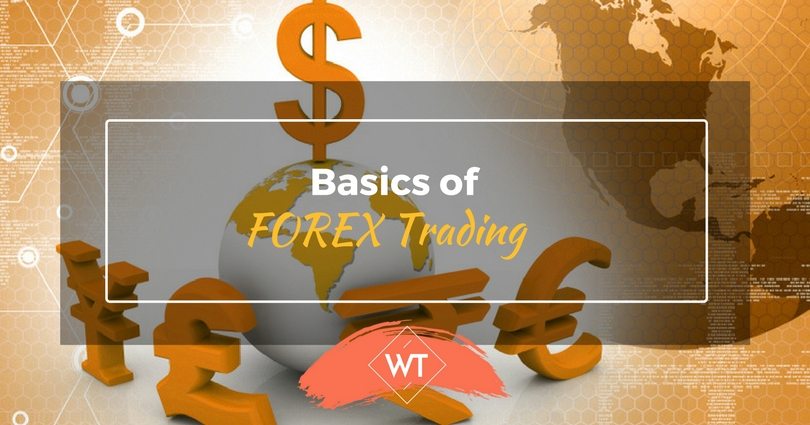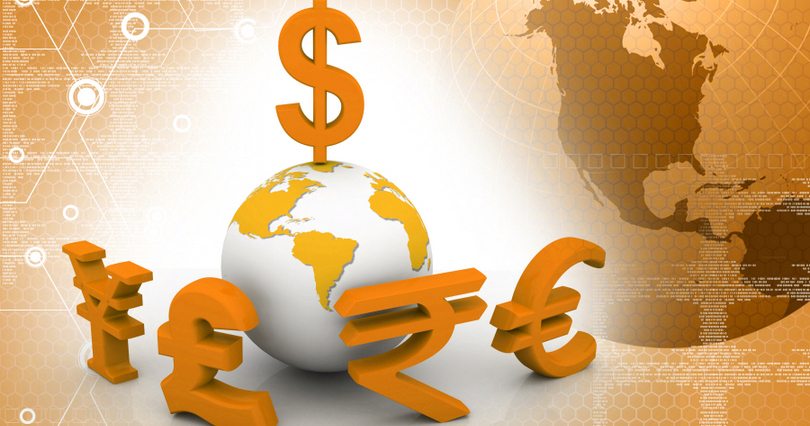Basics of FOREX Trading

Usually when we think of Forex we associate it with travelling abroad for a holiday, studying or work. Forex is an abbreviated form for Foreign Exchange and trading in Forex is also known as currency trading. The major players in the Forex market are banks, insurance companies and other financial and non-financial institutions.
Forex market is the most liquid market in the world and is growing rapidly. Retail and small investors are usually wary of investing in Forex markets but slowly the interest is growing.
When you invest in the Forex market you are making a speculation about the movement of one currency vis-à-vis another currency which means there is no physical exchange of currency.
Why Do Currency Prices Vary?
Currency trading is done because currency prices do not remain constant; it may go up or down and investors or institutions speculate on their movement. However unlike other instruments currency prices are always vis-a-vis another currency; so when we say the value of Rupee is rising then it has to be bench marked against another currency.
Also if the value of Rupee is going up against Dollar it does not mean that the same will be true for the value of Rupee against Euro. That brings us to the obvious question that why do currency prices vary?
Just like any commodity demand and supply influence currency prices but to a small extent. Other important factors that cause currency movement are the economic conditions of the country, its political environment, gold reserves held by the central bank, inflation and the monetary policies of the government. While demand and supply refers to the international trade; is a country exporting more or importing more.
Higher imports will mean outflow of Forex thus making the currency weaker; political instability will also impact the currency adversely. Often the government through its Central Bank controls the currency flow to get the desired effect on currency prices. However since the Forex market is so huge only one factor rarely affects the market drastically in the short term.
Why Trade in Forex?
As a small retail investor one might wonder does it make any sense to trade in currencies; it is not like equity where you are buying a small portion of ownership in a company. However just like you trade in commodities and aim to benefit from their price movement you can gain from speculating about fluctuations in exchange rates.
Like any speculative investment forex trading can be risky. You can benefit from exchange rate fluctuations but any speculation is a tightrope walk between risk and return so you also stand to lose money if the price movements are not what you had expected them to be.
You should therefore understand about the currency market if you want to participate in it as an investor. On the positive side: the forex market is so large that it cannot be manipulated (even by governments) and is also a low on volatility.
A Few Important Terms
Trading in Forex is different from trading in other financial instruments. Forex trading involves simultaneous buying and selling of two different currencies. Despite being the largest financial market there is no physical market for foreign exchange (spot) and all transaction are done electronically.
Forex trade is conducted throughout the day across different time zones .To understand forex trading we need to familiarize ourselves with a few important terms that are particular to forex trading.
Currency Pairs: When trading in the Forex market all quotes are made in currency pairs. A Currency Pair is the term used to describe the two currencies that make up an exchange rate. This means that when one is bought the other one is sold. The first currency in the pair is the Base Currency; while the other currency is known as the Counter Currency or the terms currency. The investor’s account is in the base currency.
If the quote is GBP/INR is 80.831 then it means that 1 GBP = Rs.80.831
PIP or Percentage in Point: A Pip represents the smallest change in a given exchange rate. The currencies are denominated up to four decimal points and one pip represents 1% or 1/100. For most currency pairs the smallest move equals one basis point but it is not true for all currencies.
Spot Market: This refers to a market or exchange that deals in the current prices of any financial instrument and in this case currency. Forex spot transactions are usually settled within two business days.
Currency Derivatives: Derivatives have no value of their own and derive their value from an underlying asset. As the name suggests the underlying asset in currency derivatives is the currency exchange rate. Derivatives help in hedging against future risk and also help in arbitrage.
Currency Futures: Legally binding contracts to sell/buy currency at a future date at an agreed price. These contracts have fixed lot size and delivery dates. For investors it can be a tool to earn profits while for corporate it can serves as an instrument to hedge risk against currency fluctuations. In these contracts the exchange acts as a counterpart and assists in settlement and clearance.
Conclusion – Forex Trading
Though basics of trading in currency are same but each country has different guidelines and rules for trading in Forex so it is necessary to familiarize yourself with these rules before you begin trading. Currency trading is monitored more closely than other forms of market trade and the rules may change depending on the economic condition and as well bilateral relations with a country.
In India the RBI along with SEBI lays down the rules about which currencies can be traded in and how.Much like anything in the investing market, learning about currency trading is easy but finding the winning trading strategies takes a lot of practice.!!!









Leave a Reply